The amino acid proline is a key ingredient in Divi's lineup of scalp products. Amino acids are sought-after personal care and beauty ingredients that have revolutionized the hair care industry for their ability to protect, repair, and rebuild.
A Closer Look at Amino Acids
Amino acids are the individual building blocks of peptides and proteins. These tiny molecules are essential to practically every life-sustaining biological process in the human body. They help build muscles, provide energy, send signals, manage immunity, and maintain healthy nails, skin, and hair.
There are 20 amino acids, of which nine are essential and 11 are non-essential. Proline is just one of several non-essential amino acids featured in Divi's products, with the others being alanine, arginine, aspartic acid, proline, glycine and serine.
These non-essential amino acids are every bit as important as their essential counterparts. They’re merely referred to as "non-essential" because the human body can build them from other amino acids we consume as part of our diet.
Where Does Proline Come From?
Proline is a non-essential amino acid, which means your body can synthesize it using other amino acids found in the food you eat. You can also find proline in many foods, such as cereal grains, sesame seeds, pumpkin seeds, egg whites, meat and dairy products like milk.
As for the proline in skin and hair care products, this is often (but not always) derived from animal sources – but not ours! The proline in Divi's Scalp Serum, Shampoo & Conditioner is synthetically produced using all-vegan and cruelty-free sources.
Key Component in Collagen Production
Proline makes up about 10% of the amino acids in collagen, a key component in skin, hair follicles and the hair shaft. Collagen is, in fact, one of the most abundant proteins in the human body. Without it, we cannot build and repair joint tissues, bones, muscles, hair or skin – including the skin on your scalp. In this respect, few proteins are more important to the upkeep of hair and scalp health.
Studies have linked collagen and its constituent amino acids to optimal skin cell function, and as such, collagen is often found in anti-aging skin products. There is a well-documented correlation between reduced collagen production and diminished hair follicle output.
One 2016 study draws a clear link between hair loss and decreased collagen around hair follicle stems. Another study, conducted in 2018, determines collagen type XVII is fundamental to the optimal microenvironment for hair stem cell health. This study found that people born with the genetic inability to synthesize this type of collagen can develop a condition leading to premature severe hair loss and graying.
It is clear that collagen can play a significant role in scalp health, hair growth and preventing premature hair loss. However, in topical applications, it's not clear if products containing collagen are the best way to boost your collagen levels. When it comes to what you put on your hair and on your scalp, opting for collagen's constituent amino acids – like proline – could be the way to go.
Why Proline and not Collagen?
If the protein collagen is essential to hair and scalp care, why don't you see it listed as an ingredient on the back of Divi's Scalp Serum, Conditioner or Shampoo bottles? The answer to this question centers around how well the protein in its complete form can penetrate the skin, scalp and hair strands. Not convinced? Keep reading.
It's widely accepted that collagen molecules are too large to be properly absorbed into the skin or processed effectively. However, the amino acids which make up collagen, like proline, have a much lower molecular weight and, therefore, can be absorbed into the skin when applied topically.
The moral of the story is if you want to increase collagen production or boost the collagen content of your scalp and hair, it's better to use personal care products containing the amino acids that makeup collagen.
Other Collagen-Forming Amino Acids
As well as proline, the amino acid glycine is also essential to collagen formation. Threonine is one of the essential amino acids the body uses to synthesize glycine. For this reason (among others), you'll also find threonine in Divi's Scalp Serum, Conditioner and Shampoo.
We explore what encouraging collagen production can do to support your scalp and promote hair growth a little further down. First, let’s look at the part proline plays in producing another essential hair protein: keratin.
Proline Supports Keratin Synthesis and Repair
Proline plays a vital role in the production of keratin, which is the main structural protein in hair. Keratin is a fibrous protein made of 18 amino acids, many of which – including proline – also appear in Divi's scalp products. Those amino acids in our formulas include arginine, glycine, alanine and phenylalanine.
The human body produces keratin naturally using amino acids from the food you eat and must do so prolifically, as this protein accounts for around 85% of your hair. With so many amino acids in keratin, an amino acid deficiency can seriously impact your hair's strength and growth rate.
Unfortunately, applying an amino acid-like proline to your hair will not help your hair follicles synthesize new keratin. However, hair and scalp products containing proline may help improve damaged hair's condition by reinforcing the keratin in the hair strands.

People keen to improve the strength of existing hair while supporting new hair growth might consider a two-pronged attack using topical treatments, such as Divi's products, alongside dietary supplements.
Proline Helps Your Scalp Promote Healthy Hair Growth
Proline may encourage healthy hair growth by supporting collagen production in hair follicles and the surrounding tissues. This protein plays a significant part in the hair growth cycle; it helps to provide structural support around hair roots, creating firmly anchored hair and thus minimizing natural hair fall.
Topical proline can strengthen hair strands and prevent breakage, giving the appearance of improved hair growth and helping your hair to be stronger and fuller.
Proline Can Improve Your Hair’s Condition
Amino acids like proline are primarily added to hair and scalp care products as conditioning agents. Proline is a component of both collagen and keratin, and it has been shown to bind to these proteins, improving the strength and quality of hair. It also has antioxidant and anti-static properties, which can help to smooth and condition your hair.
Volume and Shine
Proline's ability to bind to keratin proteins means it can reinforce the outer surface of the hair shaft, creating smoother, silkier and shinier hair. Additionally, it can increase hair thickness and volume by supporting collagen production.
Fighting Grays and Age-Related Hair Loss
Both proline and collagen are antioxidants. This means hair products containing proline may help prevent age-related hair loss and premature graying caused by free radicals.
Hair roots sit within a layer of skin called the dermis, which is composed of around 70% collagen. Research suggests people over the age of 20 produce about 1% less collagen in their skin every year. Reduced collagen production can lead to increased hair fall and thinning hair. Proline is proven to combat age-related hair thinning by helping replenish lost collagen in hair follicles and the surrounding tissues in the scalp.
Preventing Flyaways and Frizz
Like threonine and valine, proline is an uncharged amino acid. Uncharged amino acids make fantastic anti-frizz ingredients as they help neutralize the static electricity causings unruly frizz and flyaway hairs. It is usually temporary, but you can prolong the anti-static effect by using Divi's Scalp Serum. The result is your hair appears sleeker, neater, and easier to style.
Helping Protect and Repair
The amino acids making up keratin can bind together to form keratin peptides (small chains of amino acids). These peptides have been shown to form bonds with the keratin in your hair to fill gaps and repair damage caused by heat, styling and chemicals. As a result, proline can help improve hair elasticity and tensile strength. Studies also suggest proline can prevent moisture loss from the hair and improve hydration by plugging holes in the surface.
Is Proline a Safe Ingredient?
The FDA approved proline as a food additive and declared it safe as a personal care ingredient by the Cosmetic Ingredient Review Expert Panel. There are no documented instances of this amino acid causing irritation or allergic reactions.
Who Can Use Proline?
Topical proline, an ingredient of Divi's products, is considered safe to use by people of all skin and hair types. As a hair and scalp care ingredient, it can be especially beneficial to people who wish to encourage hair regrowth or repair damaged hair from excessive styling or chemical treatments.
See our full list of scalp products and choose the best ones for your regimen, as they all include proline.






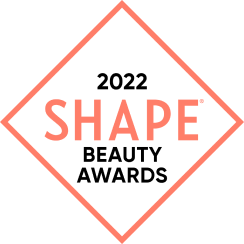





























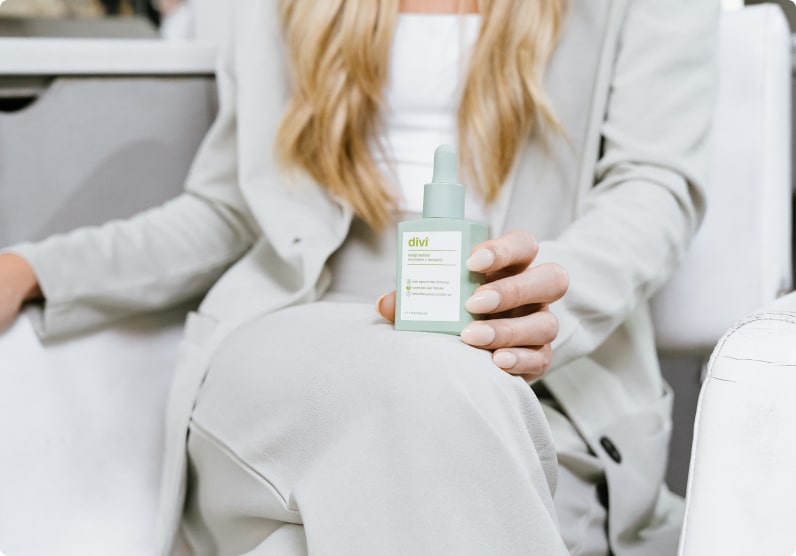
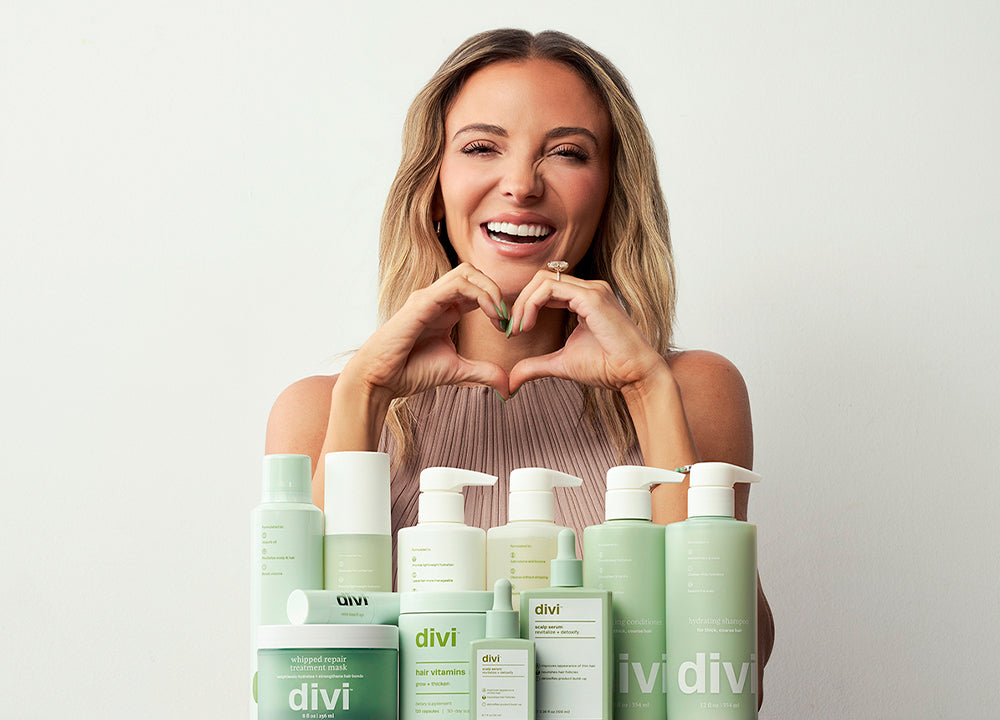
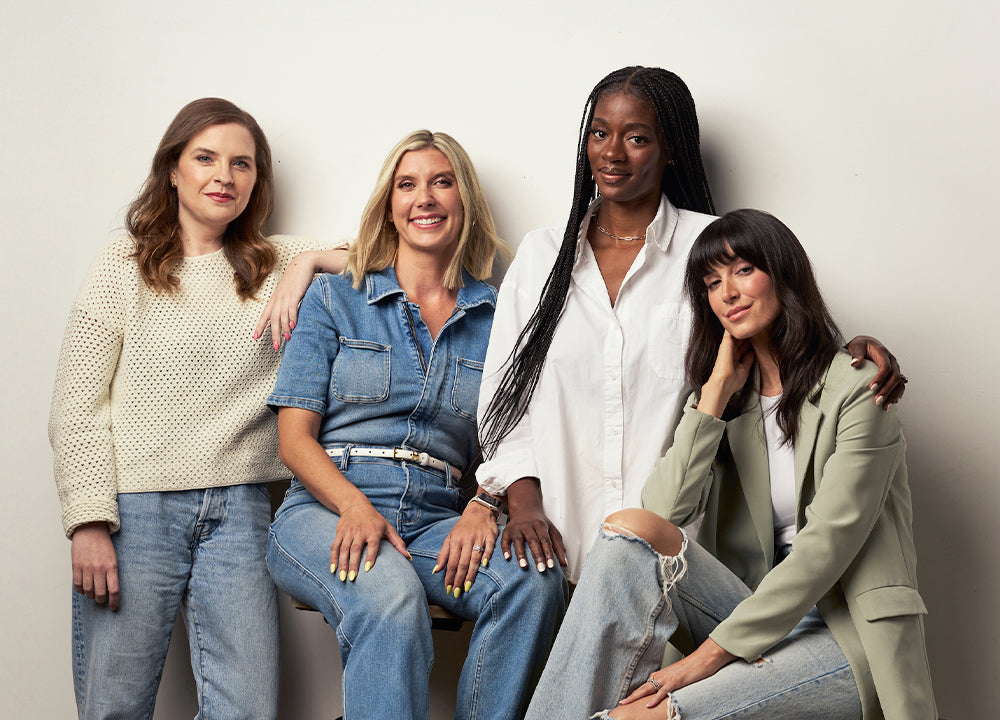
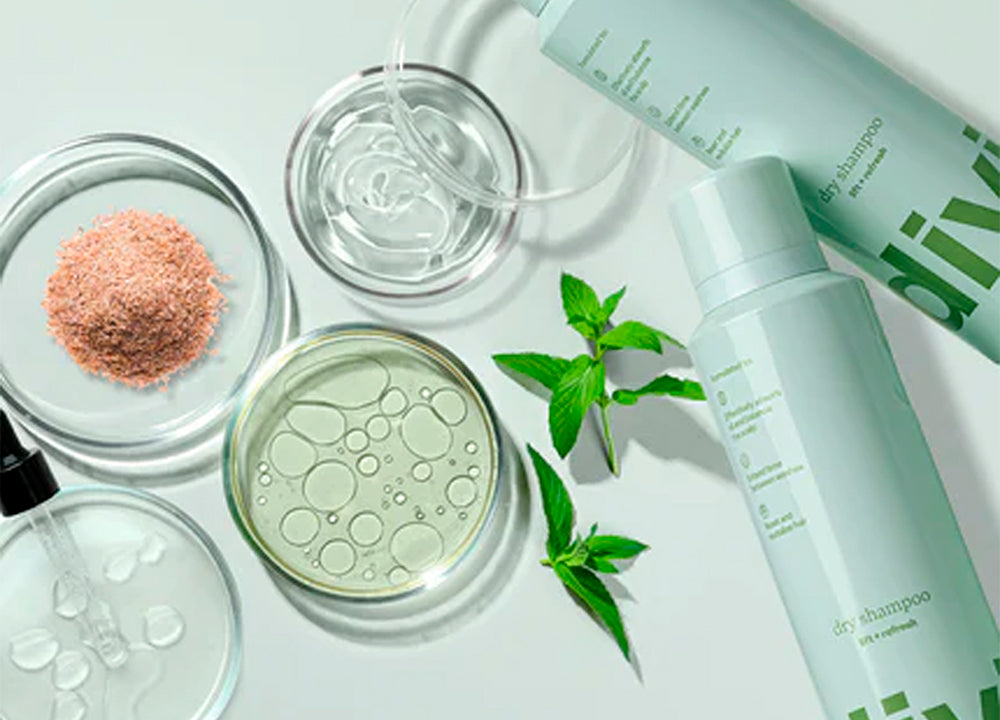
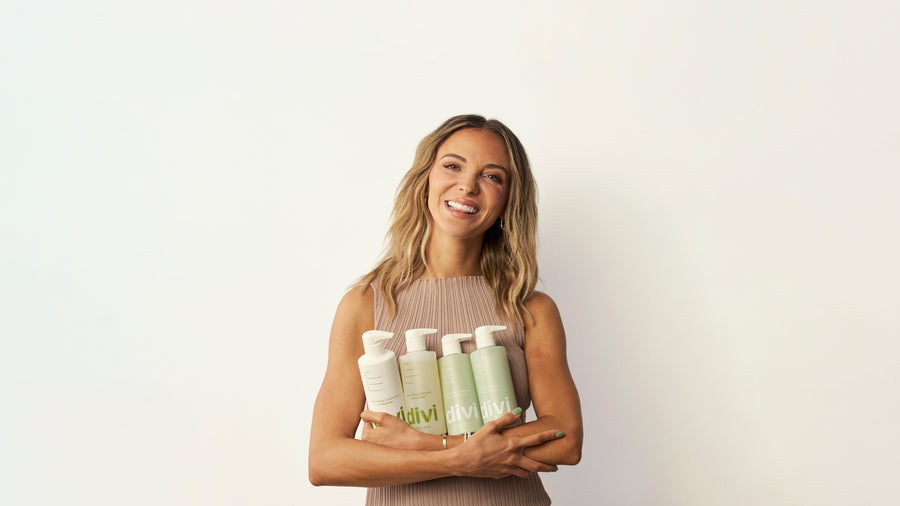
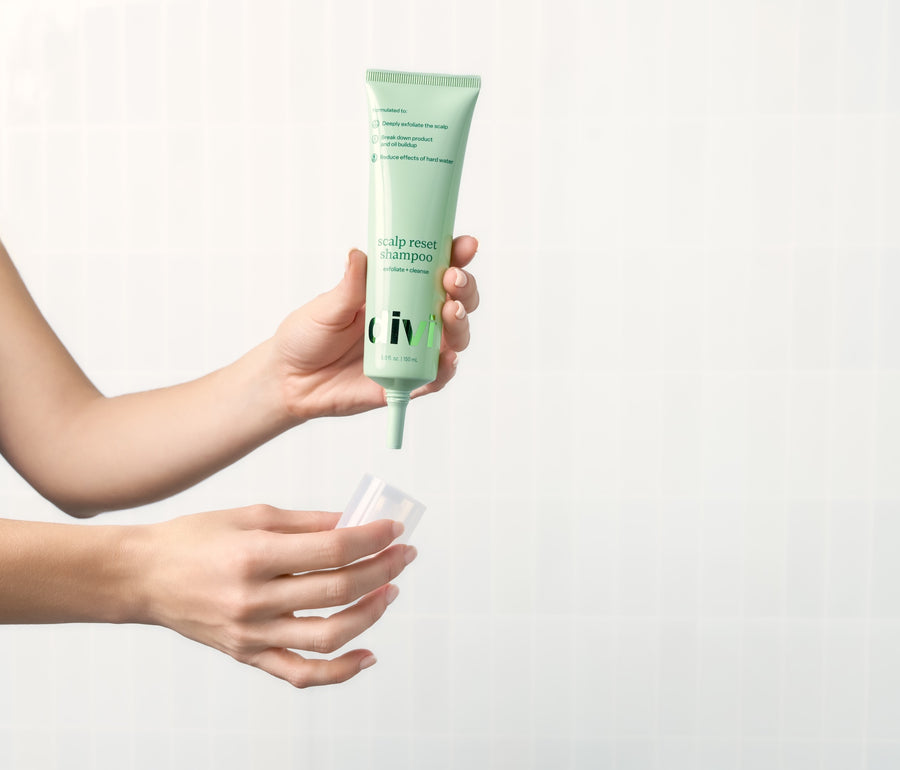
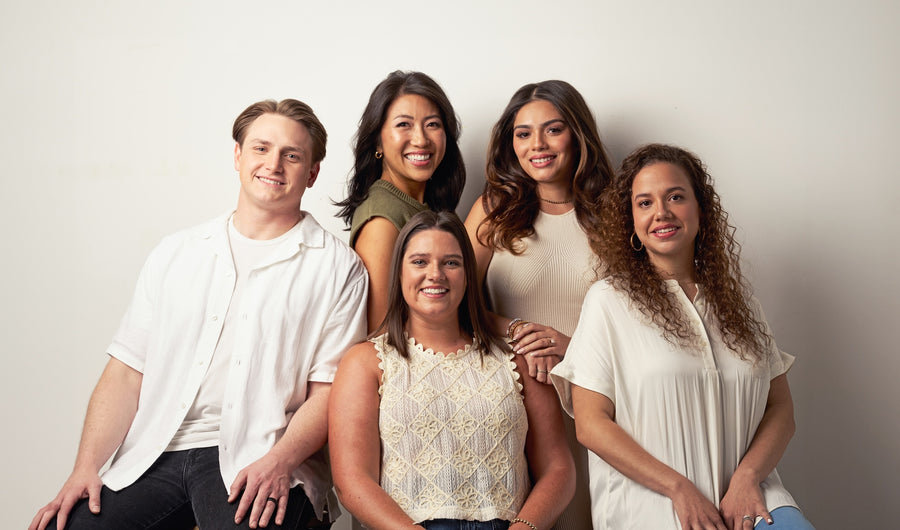
 Scalp Serum
Scalp Serum
 Scalp Reset Shampoo
Scalp Reset Shampoo
 Dry Shampoo
Dry Shampoo
 Best Sellers Bundle
Best Sellers Bundle
 Weekly Reset Duo
Weekly Reset Duo
 Root Touch Up
Root Touch Up
 Strand Plumping Styling Cream
Strand Plumping Styling Cream
 Root Reset Duo
Root Reset Duo
 3-in-1 Leave-In Conditioner
3-in-1 Leave-In Conditioner
 Air Dry Cream
Air Dry Cream
 Wash Day Essentials
Wash Day Essentials
 Frizz-Fighting Trio
Frizz-Fighting Trio
 Home & Away Dry Shampoo Bundle
Home & Away Dry Shampoo Bundle
 Volumizing Shampoo & Conditioner
Volumizing Shampoo & Conditioner
 Jumbo Volumizing Shampoo & Conditioner
Jumbo Volumizing Shampoo & Conditioner
 Volumizing Starter Bundle
Volumizing Starter Bundle
 Major Volume Bundle
Major Volume Bundle
 Volume Rescue Trio
Volume Rescue Trio
 Hydrating Shampoo & Conditioner
Hydrating Shampoo & Conditioner
 Whipped Repair Treatment Mask
Whipped Repair Treatment Mask
 Hydrating Starter Bundle
Hydrating Starter Bundle
 Hydration Heroes
Hydration Heroes
 Travel-Sized Volume Duo
Travel-Sized Volume Duo
 Travel-Sized Hydrating Duo
Travel-Sized Hydrating Duo
 Divi's Discovery Set
Divi's Discovery Set
